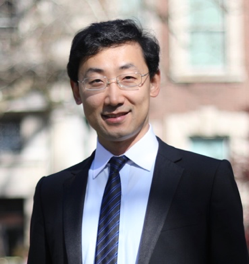In recent times, China’s interests and actions in Southeast Asia have become increasingly representative of a global economic and political agenda, interwoven with economic campaigns in Africa, and diplomatic relations with Europe and the United States. In this complicated negotiation, Vietnam has emerged as a crucial pivot between the modern Sinosphere and the ASEAN nations, while the area around Vietnam and the South China Sea has emerged as a cultural, political, economic, and military fault-line between China and Southeast Asia. This is seen not only in the hot contestation of the Trường Sa/Hoàng Sa islands of the South China Sea but also in the recent eruption of protests over “special economic zones” reserved for Chinese investors in various parts of Vietnam. Furthermore, Vietnam’s membership in the ASEAN counterbalance to China is also complicated by the ongoing and complex relationship between the Communist parties of the SRV and PRC—a relationship that has evolved rapidly, as each government negotiates normalized international relations and the opening up of markets in a post-Cold War global arena.
And yet, from the longer historical perspective, it becomes immediately clear that the South China Sea and northern Vietnam has long served as a gateway between Sinitic political entities, and the cultures, polities, markets, and shipping lanes of Southeast Asia. Indeed, for over a thousand years, northern Vietnam represented the southernmost perimeter of the Sinitic Empires. Following the emergence of independent kingship in the 11th century, Vietnamese kingdoms continued to negotiate China’s massive presence on their northern border, along with the economic, political, and cultural diversity of Southeast Asia to the south. This rich and complex history has filtered through a deeply nationalistic atmosphere, and crystallized into powerful cultural narratives regarding the relationship between China and Vietnam—but which nevertheless are often deeply historically inaccurate. Narratives describing the innate imperialist aggression of China, the ancient resistance of Vietnamese peoples against such aggression, the idea of a sharp cultural break between Sinospheric nation-states and the Indianized or Islamicized nations of Southeast Asia, or indeed, the very integrity of East and Southeast Asia as regional categories—have all been enlisted to explain the nuances of China/Southeast Asian relations. Yet these formulations are too often vague, imprecise, and teleological in nature. Such attempts to understand the multidimensionality of Sino-Vietnamese relations have suffered, in other words, from the lack of a clear, rigorous, and unified investigation into that very relationship.
To address these issues, our symposium examines the dynamic relationship between China and Vietnam, beginning in the imperial period and culminating in a special panel on contemporary Sino-Vietnamese affairs. We seek to interrogate the influence of modern nation-state paradigms on our understanding of the ancient, medieval, early modern, and recent past, as well as scrutinize the nature of “China” and “Vietnam” throughout this long history. Our goal is not only to examine what cultural, political, economic, or social tissue may connect various stages of history to the present, but also to determine what disconnections, disruptions, and discontinuities we may discover within that long history.
For more information about our symposium including tentative schedule and symposium abstract, please visit our website at https://www.
If you are able to join us, please register through our website RSVP page at https://www.
 We are proud to announce that Zhongqi Shi, Senior Lecturer in Chinese, has been invited to present his paper Student-teacher Goal Alignment: Conceptualizing, Measuring, and Determining Its Effect on Interaction and Motivation at the 2019 Annual Meeting of the American Educational Research Association (AERA), a national research society that strives to advance knowledge about education and promote the use of research to improve education and serve the public good. AERA’s Annual Meeting is the largest gathering of education researchers in the world, attended each year by more than 14,000 AERA members, scholars, policy experts, and practitioners. The department extends a hearty congratulations to Dr. Shi and looks forward to his contributions to the conference and the academic community at large.
We are proud to announce that Zhongqi Shi, Senior Lecturer in Chinese, has been invited to present his paper Student-teacher Goal Alignment: Conceptualizing, Measuring, and Determining Its Effect on Interaction and Motivation at the 2019 Annual Meeting of the American Educational Research Association (AERA), a national research society that strives to advance knowledge about education and promote the use of research to improve education and serve the public good. AERA’s Annual Meeting is the largest gathering of education researchers in the world, attended each year by more than 14,000 AERA members, scholars, policy experts, and practitioners. The department extends a hearty congratulations to Dr. Shi and looks forward to his contributions to the conference and the academic community at large.
